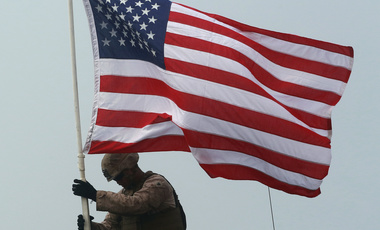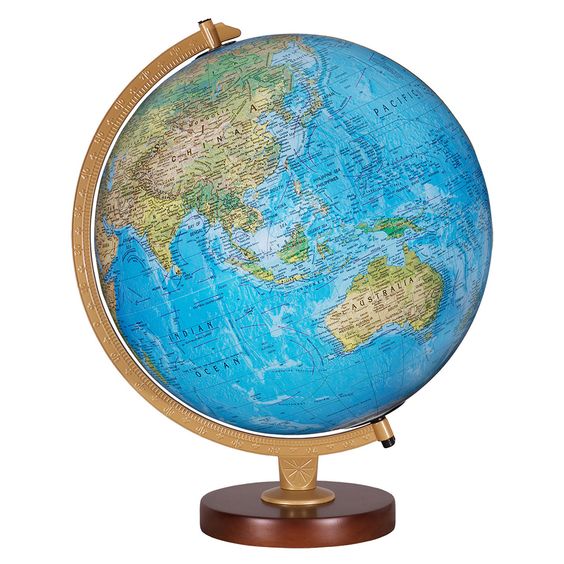
The establishment is basically those who have a vested interest in maintaining the existing political, economic, legal and social structure.
By Tom Arms
“The Establishment” is under attack. So is the “Deep State” and “The Swamp.” But who are these alleged conspirators? What is the purpose of their devilish machinations?
Well, I am going to take a stab at defining and identifying “The Establishment” and “Anti-Establishment” at the national and global level and their fiendish purpose.
For a start the establishment is not necessarily the super-rich, although they often are. Neither does poverty automatically push you into the anti-establishment category. Ditto politicians, the clergy, mainstream media and academia.
The establishment is basically those who have a vested interest in maintaining the existing political, economic, legal and social structure. These could be civil servants who are paid to implement the policies and diktats of government. Or lawyers who represent clients on the basis of existing laws. Or journalists who investigate and expose politicians and businesses who breach the law. Or police who enforce the law. Or vested interests who have a commercial stake in the existing system.
The anti-establishment is generally speaking those who want to change the rules. They believe that the law is either unfair or unjust to their circumstances. Increasingly, this section of the population are either resorting to lies, extra-legal means, circumventing the system, or simply ignoring the rules on the basis that they do not apply to them because they claim they did not have a say in making them and even less in their implementation.
This establishment v. anti-establishment conflict is apparent at the international as well as domestic level. Countries such as China, Russia and North Korea consistently justify ignoring international laws on the basis that they had little or no say in in their construction and even less in their implementation.
Political evolution rather than revolution is clearly the preferred option and in the best interests of The Establishment. They just don’t know it, or, at the very least, find it difficult to accept.
To a certain degree this is true. Most of the rules that govern international relations were determined by the United States and, to a lesser extent, Britain, in the immediate postwar years. Bretton Woods, the IMF and World Bank were an Anglo-American creation. So was the General Agreement on Tariffs and Trade (GATT) and its successor the World Trade Organization. Laws relating to copyright and intellectual property rights are based on English common law. Banking laws favour the Western banking system. The United Nations and its charter was largely the creation of President Roosevelt and the permanent representation on the Security Council is seen by many developing countries as an outdated political block.
In 1947 The US poured billions of economic aid into the rebuilding of a war-ravaged Europe. It was called the Marshall Plan. The Soviet Union was offered a share of the money. Stalin thought about it. He needed the cash. But there were strings attached. The Marshall Plan was a major philanthropic exercise, but the aid also locked Europe into a capitalist-oriented financial structure which clashed with Moscow’s planned state economy.
Part of Vladimir Putin’s justification for his invasion of Ukraine is that he does not recognize Western rules related to sovereignty, war crimes, international boundaries, human rights and the right of self-determination. Neither does he accept the primacy of liberal democratic governments.
China, in the meantime, stayed outside of the world economy until it joined the WTO in December 2001. Its communist government has elevated intellectual property theft to a new level and Beijing is currently trying to replace British commercial law with its Chinese equivalent in Hong Kong. North Korea—the communist hermit kingdom—is even more on the outside. Its population is paying the price for fighting the establishment with political dogmatism.
Anti-establishmentarians (possible new word) have common cause at both the national and international level. Undermining the rules at national level has a knock-on effect on the global stage. This helps to explain why the election of Donald Trump was supported by Vladimir Putin.
The Establishment was not always The Establishment. 500 years ago it was the Chinese who determined international trading laws, or at least any that existed at the time. British workers were working 12 hours a day and were largely disenfranchised until the Labor Party came along. The party and trade unions have been absorbed into the UK establishment and the predicted British workers’ revolution never materialized.
Political evolution rather than revolution is clearly the preferred option and in the best interests of The Establishment. They just don’t know it, or, at the very least, find it difficult to accept.
 World Review
World Review
- Lost in the hoopla about the non-celebration of Ukraine’s Flag Day was a message to Volodomyr Zelensky from Andrei Lukashenko. The Belarussian dictator cabled the Ukrainian leader his congratulations on the occasion of Ukraine’s 31st anniversary of independence from Russia. This is interesting because Lukashenko is largely viewed as a Putin poodle and Belarus is being used as a platform for attacks on northern Ukraine. Is the poodle thinking of biting its master? Or at least refusing to come to heel when called? Also not widely reported was another possible reason for Zelensky’s order for a low-key celebration. It seems that Ukrainian intelligence discovered an FSB (Russian intelligence) operation to stage anti-Zelensky and pro-Russian demonstrations during Flag Day celebrations in Kyiv and two other cities. These were to be filmed and shown in Russia and Eastern Ukraine as evidence of dissatisfaction with Zelensky and support for Russia. Obviously it didn’t work and the Russians were reduced to marking the occasion with an increase in their bombing campaign which killed another 22 Ukrainian civilians in a railway station.
- Meanwhile concerns are growing about Europe’s largest nuclear power plant, Zaphorizhzhia. It looks as if UN inspectors will be allowed in to examine conditions but those conditions are rapidly deteriorating. The big worry now is the connections from the plant to Ukraine’s national power grid. So far three of the four connections have been broken by artillery bombardments. If the fourth goes then there is a major danger of a nuclear disaster that would dwarf Chernobyl. If the connections are severed then there will be a power back up and the plant would have to be shut down or the power diverted to another grid. The problem is that shutting down a power plant it not a simple matter of flipping a switch. It takes weeks if not months to safely shut down a reactor. The Russians are talking about solving the problem by switching the plant to feed into the Russian power grid. Not surprisingly, Ukrainians regard this as energy theft. In the meantime, 9,000 Ukrainian power plant workers are being forced to work at gunpoint without pay. One was reported beaten to death and another one was hospitalized for three months after a severe beating. Before the war there were 11,000 workers at Zaphorizhzhia. The families of the workers have been evacuated into other parts of Ukraine or Poland.
- The stars appear to be moving into alignment for a revived nuclear power deal with Iran. This one is being brokered by EU foreign affairs commissioner Josep Borrell who has been shuttling in cyber space between Tehran and Washington. Tehran has reportedly said it would allow nuclear inspectors unlimited access to its reactors and roll back its nuclear program. In return the US is talking about lifting sanctions on 17 Iranian banks and 150 economic institutions releasing billions of dollars in frozen Iranian funds and allowing Iranian exports to resume. Iran has some of the world’s largest proven oil reserves and if sanctions were lifted increased Iranian oil exports would help to reduce Europe’s need for Russian exports and have a positive impact on energy inflation. Of course, there are still problems. One is Israel. Prime Minister Yasir Lapid has called on President Biden to call off the latest round of talks and his predecessor Benny Gantz is on his way to Washington for talks with the White House, State Department and Republican Party supporters. Another fly in the diplomatic ointment is Iran’s insistence that future US administrations be bound by any deal struck by President Biden. Republican presidential hopeful Ted Cruz has already ruled that out and as for front-runner Donald Trump—well his views are well known.
- The murder of Russian journalist Darya Dugin—which was almost certainly the attempted assassination of her father Alexander—has swung the spotlight onto an early twentieth century geopolitical stratagem called The Heartland Theory. A British Victorian geographer called Halford Mackinder was responsible for the Heartland Theory. He argued that advances in railways and other land transport meant that British-dominated sea power would be replaced by land power. And that whomever controlled the territory from Eastern Europe to China would control the “heartland” of Eurasia. Furthermore that whomever controlled the heartland controlled what Mackinder called “the world island” which encompassed all of Europe, Asia and Africa; and whomever controlled the world island controlled the world. Alexander Dugin has taken Mackinder’s Heartland Theory, harnessed it to the Orthodox Church and Russian nationalism and declared that it is geopolitical evidence of Russia’s divine historic mission. He has sold that belief to Vladimir Putin. Dugin has been described as Putin’s brain. A more accurate description might be “Putin’s soul”, and in Russia, the soul is all-important.
- Those who know ex-Australian Prime Minister Scott Morrison are not particularly surprised at the revelation that he secretly garnered nearly half a dozen cabinet posts. “Right from the start of his political career he was known as a second rate slime ball,” said one senior diplomat. His penchant for accumulating power should have been apparent from his days in the Turnbull government. He started as Immigration Minister and after craftily passing fresh legislation emerged with more powers than any of his predecessors. He used those powers to enact and ruthlessly enforce some of the toughest anti-immigration, anti-asylum and anti-refugee laws in the developed world. He was regularly attacked for lack of accountability and transparency and the Australian Human Rights Commission issued a scathing attack on his treatment of refugee children. Morrison moved from Immigration to the Social Affairs portfolio where he was criticized for assuming powers reserved for Treasury Minister Joe Hockey. Shortly afterwards Turnbull appointed him Treasury Minister. Morrison’s accumulation of portfolios should be seen in the context of a worrying trend in a move from Westminster-style parliamentary government in which the prime minister is “first among equals” to a more American-style presidential system. Boris Johnson is another proponent of the shift as is Hungary’s Viktor Orban. But neither men have had themselves secretly assigned ministries.
- Ex-Prime Ministers of Asian countries don’t normally go to prison, even if they are guilty of corruption. They usually manage to organize a pardon or stretch their legal battles into infinitum ad nauseum. Najib Razak has broken the mould and perhaps set a precedent which could extend well beyond Asia. This week a Kuala Lumpur court rejected the 69-year-old former PM’s appeal against a 12-year prison sentence and $46.8 million fine for seven counts of fraud involving $9.4 million. The sum is alleged to be only the tip of a fraudulent iceberg. Razak faces five more trials involving the theft of $700 million from Malaysia’s Sovereign Wealth Fund 1MDB. In total, the $9.4 billion fund was defrauded of $4.5 billion and the American banking giant Goldman Sachs was dragged into the scandal and fined $3.8 billion for misleading investors. Next week, Razak’s wife goes on trial for money laundering and tax evasion. In Malaysia, at least, no one is above the law.
____________________
 Tom Arms is foreign editor of Liberal Democrat Voice and author of the recently published book “America Made in Britain” he is currently working on a rewrite of his “Encyclopedia of the Cold War.”
Tom Arms is foreign editor of Liberal Democrat Voice and author of the recently published book “America Made in Britain” he is currently working on a rewrite of his “Encyclopedia of the Cold War.”